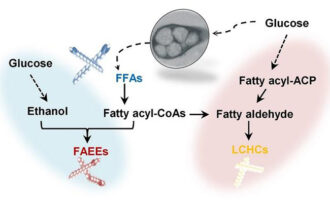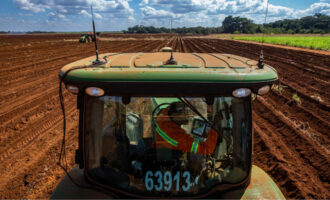
Total starts up La Mède Biorefinery
French energy major Total has started up production at the La Mède biorefinery in southeastern France, with the first batches of biofuel coming off the line. It is the final step in converting a former oil refinery into a new energies complex. Launched in 2015, the project represents a capital expenditure of EUR275 million (USD308 million).
The La Mède complex now includes:
- A biorefinery with a capacity of 500,000 tonnes of biofuel per year
- An 8-megawatt solar farm that can supply 13,000 people
- A unit to produce 50,000 cubic meters per year of AdBlue®, an additive that reduces nitrogen oxide emissions from trucks
- A logistics and storage hub with a capacity of 1.3 million cubic meters per year
- A training center offering facilities capable of hosting 2,500 learners a year
Together, these new activities have maintained 250 direct jobs at La Mède.
As part of the site transformation, 65% of the orders to remodel the complex were awarded to local businesses, representing 800 jobs and EUR140 million (USD157 million) in revenue. Total also invested EUR5 million (USD (USD5.6 million) in the economic development of the Fos-Etang de Berre region, notably by supporting initiatives to create jobs, attract industrial projects and support contractors, which is five times as much as a typical revitalization agreement.
The biorefinery can produce 500,000 tonnes of hydrotreated vegetable oil (HVO), a premium biofuel. La Mède will produce both biodiesel and biojet fuel for the aviation industry. It was specifically designed to process all types of oil.
To promote a circular economy, 30 to 40% of the feedstock will come from treated waste such as animal fats, cooking oil, residues, etc. The balance will come from 100% sustainable vegetable oils such as rapeseed, palm, and sunflower.
As part of an agreement with the French government in May 2018, Total has pledged to process no more than 300,000 tonnes of palm oil per year — less than 50% of the total volume of raw materials needed — and at least 50,000 tonnes of French-grown rapeseed, creating another market for domestic agriculture. All the oils processed will be certified sustainable to European Union standards. In addition, as part of its palm oil procurement process, Total is taking an extra step by introducing strengthened control of sustainability and respect for Human Rights.
“I’d like to thank the teams for all their hard work these last four years to convert our La Mède refinery,” said Bernard Pinatel, president, Refining & Chemicals. “Biofuels are fully renewable and an immediately available solution to cut carbon emissions from ground and air transportation. When produced from sustainable raw materials, as at La Mède, they emit over 50% less carbon than fossil fuels. Our biorefinery will allow us to make biofuels in France that were previously Imported.”
echo '








